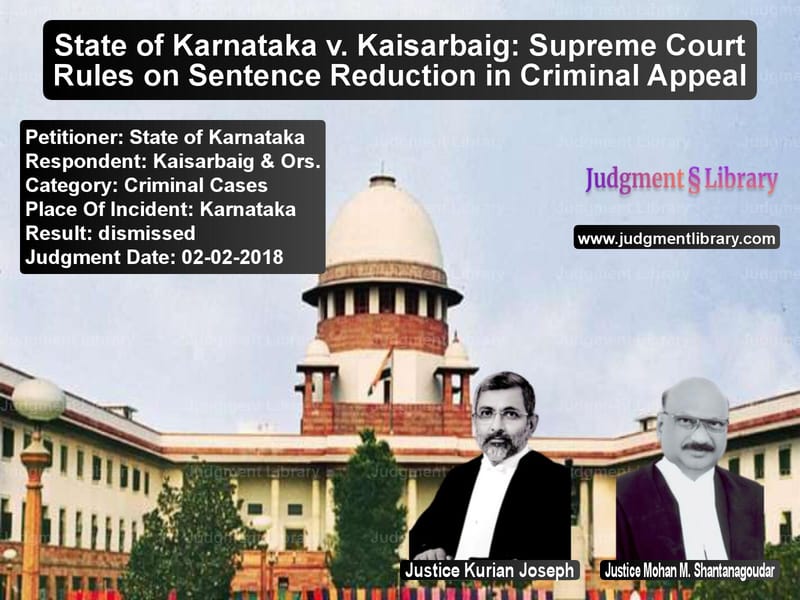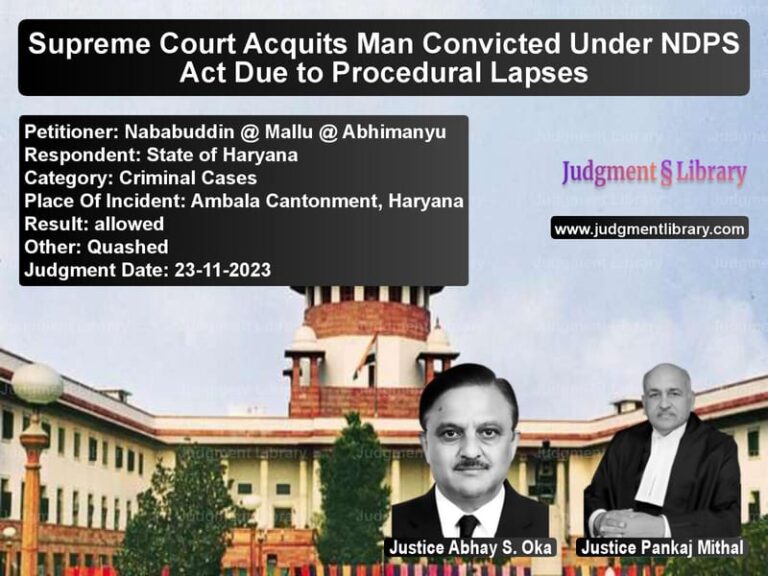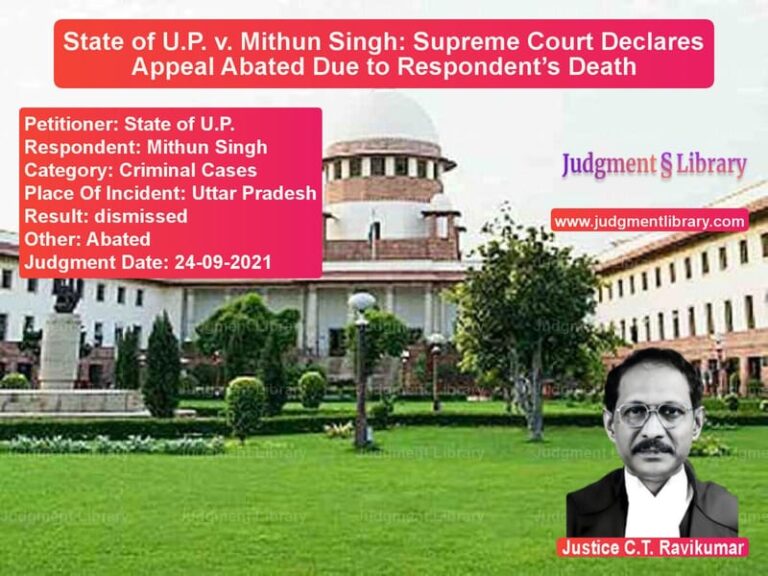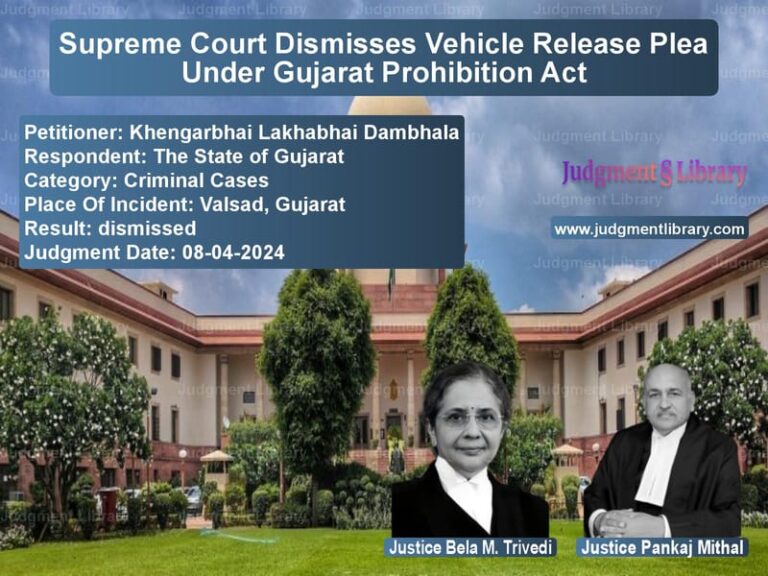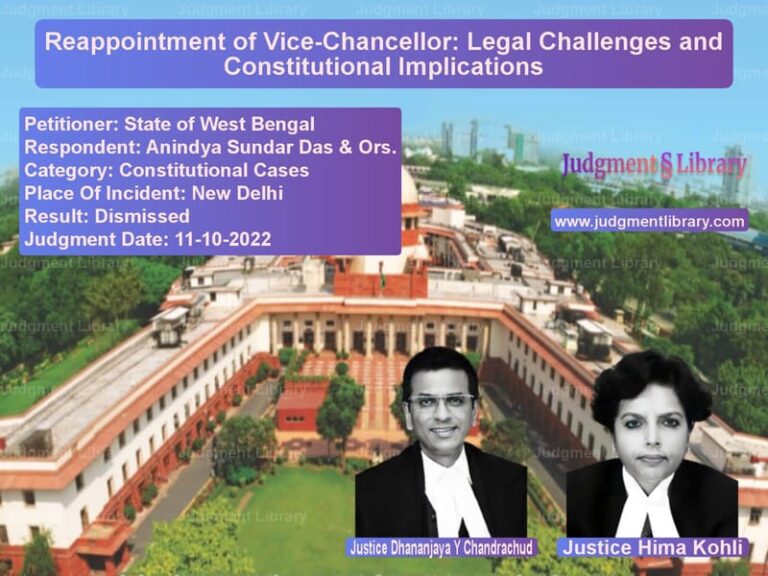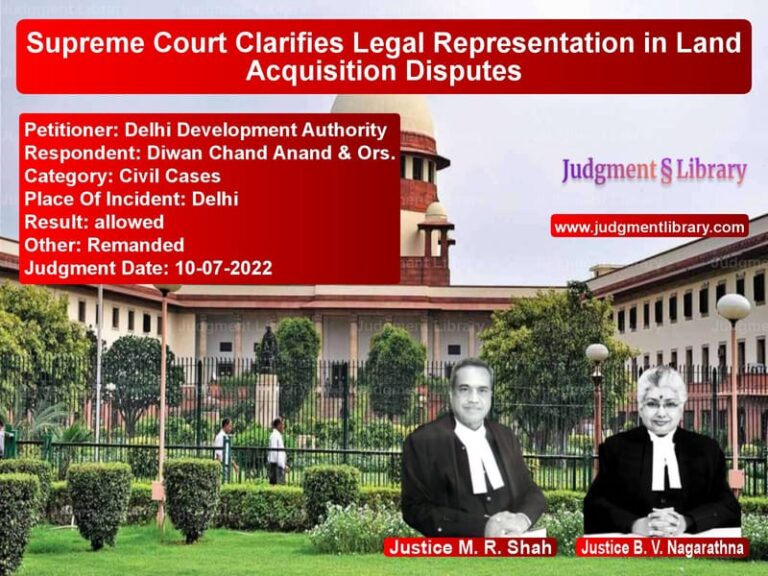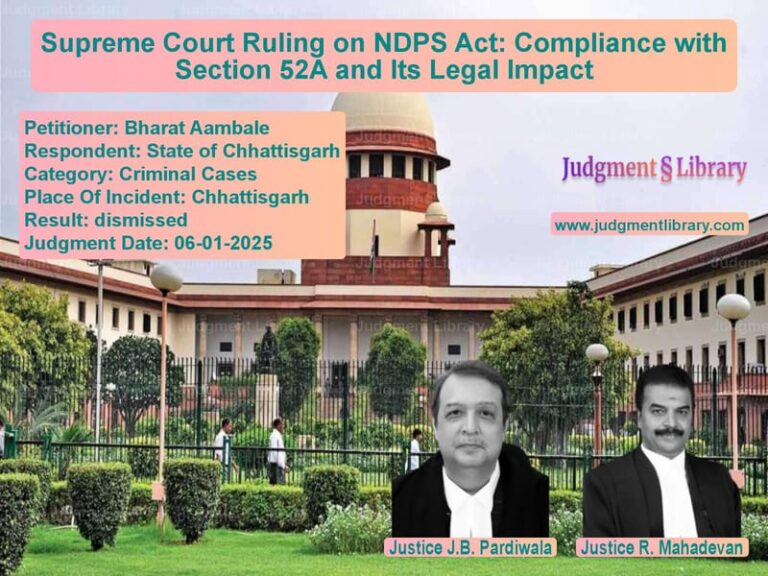State of Karnataka v. Kaisarbaig: Supreme Court Rules on Sentence Reduction in Criminal Appeal
The Supreme Court of India recently ruled on a criminal appeal in State of Karnataka v. Kaisarbaig & Ors., dealing with the reduction of sentences imposed by the High Court. The case revolved around a group of accused convicted under Sections 147, 148, 323, 504, and 307 read with Section 149 of the Indian Penal Code (IPC). Initially sentenced to three years of imprisonment, their sentence was later reduced by the High Court to monetary fines. The Supreme Court examined whether this reduction was justified, given the nature of the offenses.
Background of the Case
The State of Karnataka filed the appeal after the High Court of Karnataka modified the conviction and sentencing of the accused in an appeal filed under Section 374(2) of the Code of Criminal Procedure (Cr.P.C.). Originally, the accused had been convicted and sentenced to imprisonment for three years. However, the High Court reduced their conviction to Sections 148 and 324 read with Section 149 IPC, imposing fines of Rs. 3,000/- under Section 148 and Rs. 10,000/- under Section 324, payable to the victim.
Arguments Presented
Petitioners (State of Karnataka)
The State of Karnataka, represented by counsel, argued:
- The High Court’s reduction of sentence was too lenient considering the gravity of the offenses.
- The initial sentence of three years’ imprisonment was appropriate given the injuries suffered by the victim.
- The High Court failed to consider the deterrent effect of a custodial sentence in cases of violent crime.
Respondents (Accused)
The respondents’ counsel countered with the following arguments:
- The accused had already served a portion of their sentence in jail.
- The accused and the victim had since resolved their differences and had “purchased peace” between themselves.
- The High Court’s decision to impose monetary fines rather than imprisonment was justified under the circumstances.
Supreme Court’s Analysis
The Supreme Court considered the balance between justice for the victim and the circumstances that warranted sentence modification. While recognizing that the punishment should be proportionate to the offense, the Court also acknowledged that the accused had already undergone some period of incarceration. Additionally, the victim had been compensated through the fines imposed by the High Court.
Key Observations
- Judicial Discretion in Sentencing: The Court noted that sentencing is not merely a mechanical exercise but requires consideration of the circumstances of the case.
- Restorative Justice: The Court took into account the fact that the parties had “purchased peace,” indicating an element of reconciliation between the accused and the victim.
- Deterrence vs. Rehabilitation: The Court recognized that while deterrence is an essential aspect of criminal punishment, it must be weighed against the need for rehabilitation and closure for all parties involved.
Supreme Court’s Decision
The Supreme Court upheld the High Court’s decision to reduce the sentence but increased the fine imposed on the accused. The Court ruled:
“The punishment, as ordered by the High Court, is too low. However, having regard to the fact that the respondents have already undergone some period in jail and taking note of the fact that the incident occurred in 2007 and since the parties have purchased peace, we are of the view, in the peculiar facts of this case, that no further sentence of incarceration needs to be imposed.”
Final Order:
- The Supreme Court imposed an additional fine of Rs. 50,000/- (Rupees Fifty Thousand), to be paid by the accused to the victim.
- The fine amount was required to be deposited in the trial court within two months.
- Failure to pay the fine would result in an additional three months of imprisonment for the accused.
Implications of the Judgment
This ruling demonstrates the Supreme Court’s approach to balancing legal principles with practical considerations of justice. While the Court recognized the importance of deterrence, it also took into account the time elapsed since the offense, the reconciliation between parties, and the partial sentence already served by the accused.
Key Takeaways:
- Judicial discretion in sentencing must consider both punitive and restorative justice elements.
- Resolution between parties can be a factor in sentencing but does not override the need for justice.
- Fines and compensation can be used as alternative forms of justice where appropriate.
The Supreme Court’s ruling in this case provides clarity on sentencing principles and the balance between punishment and rehabilitation in criminal cases.
Petitioner Name: State of KarnatakaRespondent Name: Kaisarbaig & Ors.Judgment By: Justice Kurian Joseph, Justice Mohan M. ShantanagoudarJudgment Date: 02-02-2018
Don’t miss out on the full details! Download the complete judgment in PDF format below and gain valuable insights instantly!
Download Judgment: State of Karnataka vs Kaisarbaig & Ors. Supreme Court of India Judgment Dated 02-02-2018.pdf
Direct Downlaod Judgment: Direct downlaod this Judgment
See all petitions in Bail and Anticipatory Bail
See all petitions in Attempt to Murder Cases
See all petitions in Extortion and Blackmail
See all petitions in Judgment by Kurian Joseph
See all petitions in Judgment by Mohan M. Shantanagoudar
See all petitions in dismissed
See all petitions in supreme court of India judgments February 2018
See all petitions in 2018 judgments
See all posts in Criminal Cases Category
See all allowed petitions in Criminal Cases Category
See all Dismissed petitions in Criminal Cases Category
See all partially allowed petitions in Criminal Cases Category

